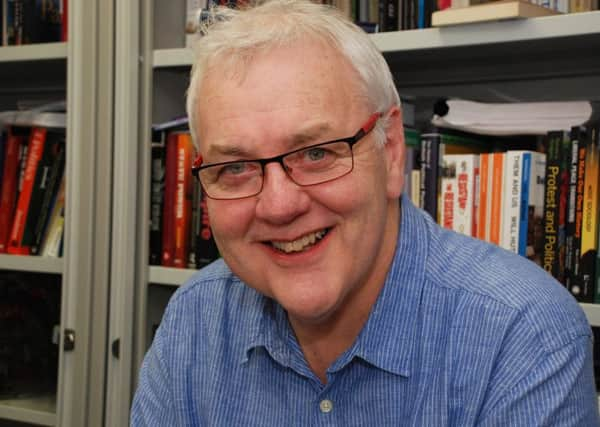New DUP book winspoliticalprize


‘The Democratic Unionist Party: From Protest to Power’ (Oxford University Press), draws on a pioneering analysis of Northern Ireland’s most popular party.
It’s co-authored by the University of Huddersfield’s Professor Jim McAuley, who also recently published a sole-authored book that probes the nature of contemporary Loyalism.
Advertisement
Hide AdAdvertisement
Hide AdThe DUP book was the product of a project funded by the Economic and Social Research Council (ESRC) that enabled Professor McAuley and his colleagues to carry out the first-ever survey of the DUP’s membership, canvassing their views on central issues such as power-sharing with republicans, religion, social matters, policing and security, plus attitudes towards other unionist groups.
The authors – a five-strong team, all based at UK universities – sent questionnaires to the entire DUP membership and conducted in-depth interviews with 100 members. The research took place over two years. Never before had the party allowed such an exercise to take place.
“They never really articulated why they had been so reluctant, but they are wary of how the outside world sees them,” said Professor McAuley. “However, once they were on board, they were very helpful to us,” he added.
The research took place during a phase in which many members of the traditionally more moderate Ulster Unionist Party (UUP) were switching to the DUP.
Advertisement
Hide AdAdvertisement
Hide Ad“We tried to measure whether that influenced the party to soften its line,” said Professor McAuley.
The Democratic Unionist Party: From Protest to Power is written collaboratively by Professor McAuley, with Jonathan Tonge (University of Liverpool), Thomas Hennessey (Canterbury Christ Church University), Maire Braniff (University of Ulster) and Sophie Whiting (University of Bath).
Very British Rebels
The award-winning book is the latest addition to a substantial catalogue by Professor McAuley, dealing with many dimensions of Unionism. And recently published is Very British Rebels: The Culture and Politics of Ulster Loyalism (Bloomsbury), in which Professor McAuley challenges some of the narrow views of Ulster Loyalism.
“It is much wider than the media projects and there is a social base to it, distinct from Unionism. Very often the media rolls them together and Loyalism is seen simply as the extreme end of Unionism. I have tried to show that Loyalists are distinct from Unionists in their political views, in their social class, in the way they see their Britishness and in the way they view their commitment to the Crown,” said Professor McAuley.
Advertisement
Hide AdAdvertisement
Hide AdVery British Rebels also analyses the songs of Loyalists and the ways in which they remember history and pass on memories from one generation to the next.
Professor McAuley is currently involved in an ESRC-funded project to conduct a series of seminars on memory and history in Northern Ireland and he will also collaborate on a membership survey of the Ulster Unionist Party, funded by a British Academy grant.